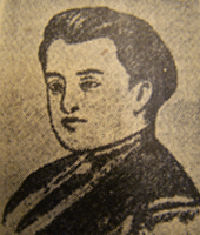
1842-1890
Anna Gogoberidze graduated from St. Nino’s educational institution for women. She married G. Muskhelashvili, a high ranking military officer in the Akhaltsikhe district.
In 1870, Anna Gogoberidze – Muskhelashvili established the Charity Association of Akhaltsikhe designed to provide free education to women of Akhaltsikhe and to teach them vocation too. Initially, she herself engaged in pedagogic activity. The free school for women in Akhaltsikhe, which mainly provided education to poor women, was hailed as the “brightest star” by Iakob Gogebashvili.
Anna Gogoberidze – Muskhelashvili led a supervisory committee which was set up by the Society for the Spreading of Literacy Among Georgians for the aim of founding a primary school in Kutaisi. In 1885, she participated in establishing the Akhaltsikhe unit of the Society for the Spreading of Literacy Among Georgians.
“She was just 25 years old when she developed an intention to establish the first primary school for women and realized this intention in such a remote city as Akhaltsikhe. When the public activity of men is full of difficulties, imagine what it would take a woman to do that. If the Akhaltsikhe women’s school still exists, it is entirely owing to her efforts and tireless work. This school was built upon such moral basis that it raised many hard working compatriots and it is still desirable to have such schools established.
“She was elected the chair of committee of the school for nobility and she started to improve the life of poor students with great zeal. Clothes were made for these youth in her house; charity performances were also organized by her. At those times, a charity association was established in Kutaisi upon the initiative of Episcope Gabriel and this woman was elected the chair of this association.
“No matter where she was and how remote a settlement she had to live in, Anna Muskhelashvili brought there enlightenment, love for mankind and always found followers thanks to her reasonable influence.
“No society would be found or book would be published without her expressing sympathy, providing assistance in words or by deeds. She was the first who expressed support with a letter of sympathy the Jejili magazine when it was published.”
The newspaper Kvali, issue #27; 4 July, 1893

